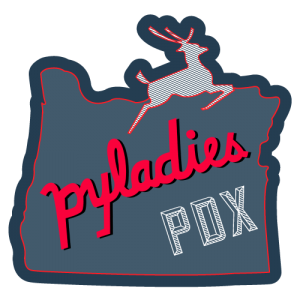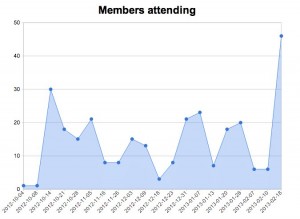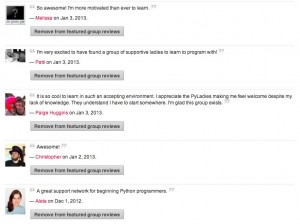I flew to San Francisco yesterday to join 200 women and allies at AdaCamp. This is the third Ada Camp I’ve been part of, and it’s been wonderful to see the event evolve, get quite a bit bigger and turn into a place where I meet coworkers and like-minded nerdy women in an unabashedly feminist space.
I stopped by Heroku before heading to the reception, to meet up with @cathynalee and see my buddies at Heroku Postgres. After a round of a hilarious card game where you fight rounds to the death (with dice of course) with strange heros (mine was a Barbarian) and acquire coins to win, I headed off to the Google SF offices for our reception.
I’d never been to the space before. The view was pretty great.
Many, many old friends were there. Having the opportunity to sit and mingle and be silly for a couple hours was great for calming me down, and wonderfully restorative to be able to just relax with friends I work on so many difficult problems with, week after week. I also saw several friends from Portland, who I don’t see often enough at home. I ran into Sarah Sharp, who gave me the stats on her work with the Gnome Outreach Program for Women and the Linux Kernel. In short: In 13 days, 374 patches were submitted, and 137 patches were accepted. Six women were accepted into this round of OPW. Fantastic work on the part of the Linux Kernel contributors and all the women who applied.
I also got to mingle with hackerspace founders from Seattle and San Francisco. I’m just a supporter of hackerspaces, rather than a founder, so I felt a little bit like a fangirl joining their conversations. I also met the creator of Hate Map, a sentiment analysis heat mapping tool.
And, I met a fellow coworker from Mozilla for the first time and we chatted about PyLadies, PyStar and grassroots education efforts for adult, beginner programmers. And then another woman joined us and we veered off and talked about Texas, how insane the advisory system is in high schools that steer women away from tech and science classes “to keep balance” in the girls lives (!!??!?!) and learning to drive as an adult.
As the party wound down, I met with some organizers of an imposter syndrome workshop. My advice to women who feel like they’re frauds: pick some badass skill to acquire and spend a couple days mastering the basics. For me, my eyes were opened to the power of badassness and the confidence that it inspires when we taught PyLadies how to use git. Several of the women who have taken these classes have come back to me with stories of impressing their coworkers, getting jobs and overall just feeling like they belonged in tech circles and discussions because they could confidently talk about git workflows.
Overall, great conversations and I’m looking forward to more amazing ones over the next two days.



